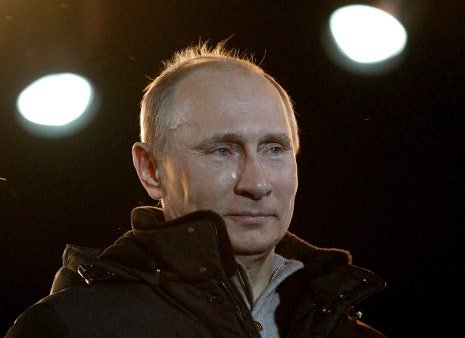Why does Russia hide the killing of its generals?
When a sophisticated Russian Sukhoi Su-25 was shot down in Ukraine's Donbass region in May, many questions arose about the pilot's death.
Why would a 63-year-old drive such a sophisticated military machine? In the first place, what was a retired man who left the Russian army about ten years ago doing on the plane? And why would another Russian general lose his life in the line of fire? And how many Russian generals have died like this?
By answering these questions, it is possible to find out many of the conditions of the Russian war machine, and the losses of that war in terms of lives - especially the lives of the military leaders.
Major General Kanamat Potashev was a respected Russian pilot, and despite his rank, age, and retirement, Potashev returned to the cockpit that day.
The BBC spoke to three of his former subordinates who said he could not stay away from a "special military operation" - a phrase used in Russia to refer to the complete invasion of Ukraine.
One of Potashev's colleagues told the BBC: "He was an outstanding pilot...and there are few like him who are interested in aviation around the world. I will always be proud to have served under him."
But Potashev's participation in the fighting in Ukraine is in fact incomprehensible - not only because of his age, but Major-General Potashev at the time when he flew this plane was not an active member of the Russian army; He had left the service ten years earlier.

Dead Generals
Potashev is one of several Russian generals killed in the Ukrainian War. There is widespread disagreement over the number of Russian generals killed. The death of one general is unusual in modern warfare.
By way of comparison, when US Major General Harold Greene was killed by an Afghan soldier in an internal attack in 2014, it was the first time in more than 40 years that a general had been killed in a military conflict.
Ukraine claims that about eleven Russian generals have been killed in the conflict so far, but a number of those reports have been proven wrong, with three of these dead subsequently appearing in live videos.
So far, eight Russian generals are reported to have been killed in the Ukrainian war, four of whom have been confirmed dead, while the other four have not been confirmed (nor has the opposite been confirmed).
With the intensified Russian military operations continuing in the Donbas region in eastern Ukraine, targeting the positions of the Ukrainian military forces and western weapons depots, yesterday, Ukrainian President Volodymyr Zelensky suggested that Russia would intensify its attacks on the Donbass region, days before talks with the European Union to discuss his country's request to join the bloc.

The Ukrainian army is still standing
Zelensky said: “Our army is steadfast, and we are ready to confront Russia, which is regrouping its forces in the direction of Kharkiv in northeastern Ukraine and the Zaporizhia region in the south, and is still bombing our fuel facilities.” “Since 1991, there have been few decisions as important as the one we are waiting for today for Ukraine,” Zelensky said, noting that he was “convinced that only a positive response would be in the interest of all of Europe.”
Following the European Commission's recommendation to grant Ukraine candidate status to join the European Union, the bloc's member states meet next Thursday and Friday to decide whether to formally grant Kyiv candidate status. The adoption of the resolution requires the unanimity of the 27 member states.
The governor of Luhansk region, Sergei Gaidai, said that the Russians "tried to penetrate the Toshkivka region, and partially succeeded, but our artillery responded to them." "Actually, they control the greater part of the city," he said.
The Russian Defense Ministry said that the forces of the Luhansk People's Republic, with the support of the Russian armed forces, took control of the town of Mytekino, southeast of Severodonetsk, and fierce fighting is taking place in the vicinity of the region with the aim of capturing the Donbas region, which has been partially controlled by pro-Russian separatists since 2014, and which consists of the Luhansk regions. and Donetsk.

Reference1
Refernce2
Previous Reviews
Invincible Review - Anime and Superheroes
Enforcement Review - Danish Action and Creativity
Better Days Review - Humanitarian Issue again
Thanks


"Pro-russian separatists"- more like Ukrainians.